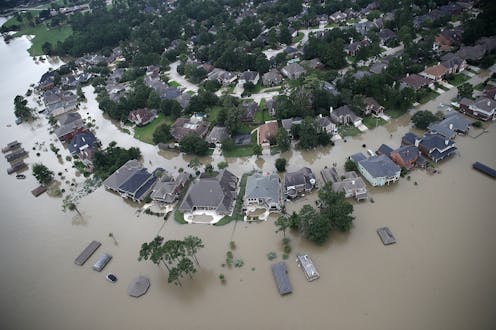What's a 100-year flood? A hydrologist explains
- Written by Robert Mace, Executive Director of the Meadows Center for Water and Environment, Texas State University
 A '100-year flood' doesn't mean you'll be flood-free for the next 99 years.Win McNamee/Getty Images
A '100-year flood' doesn't mean you'll be flood-free for the next 99 years.Win McNamee/Getty ImagesA 100-year flood, like a 100-year storm, is one so severe it has only a 1% chance of hitting in any given year.
Unfortunately, many people believe that if they experienced a 100-year flood this year, they will not see another one like it for 99 years.
I...

